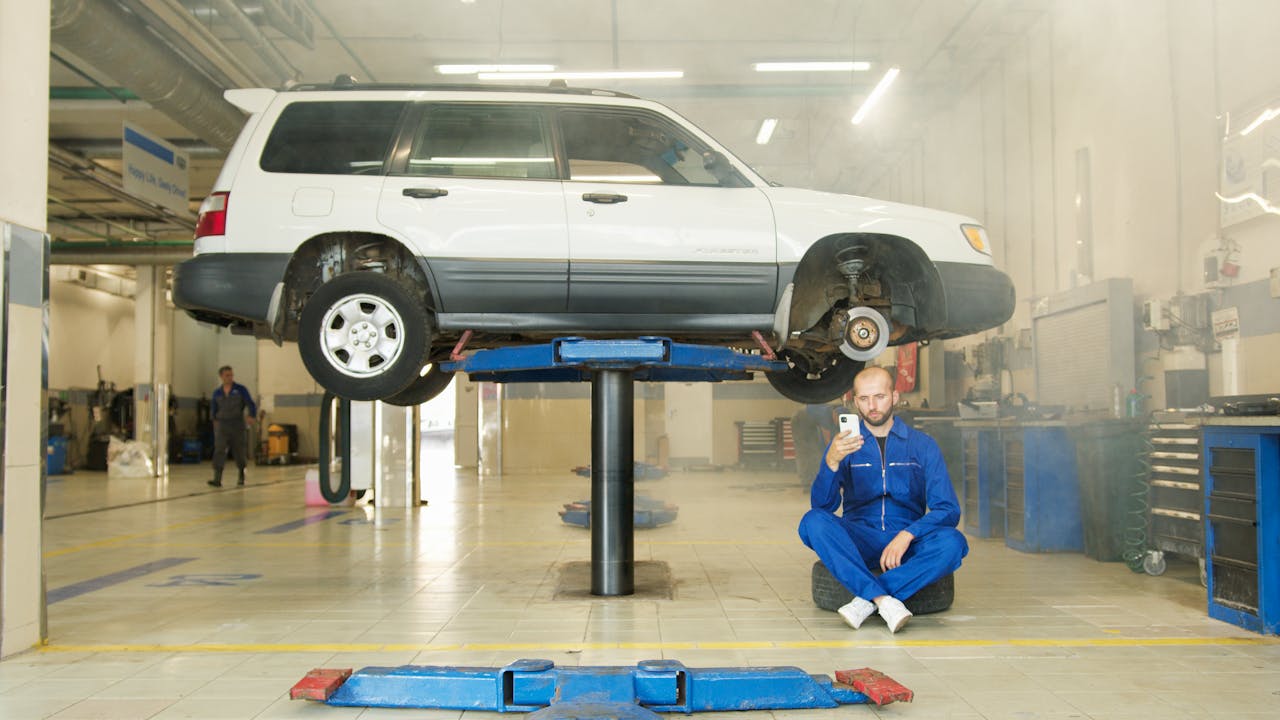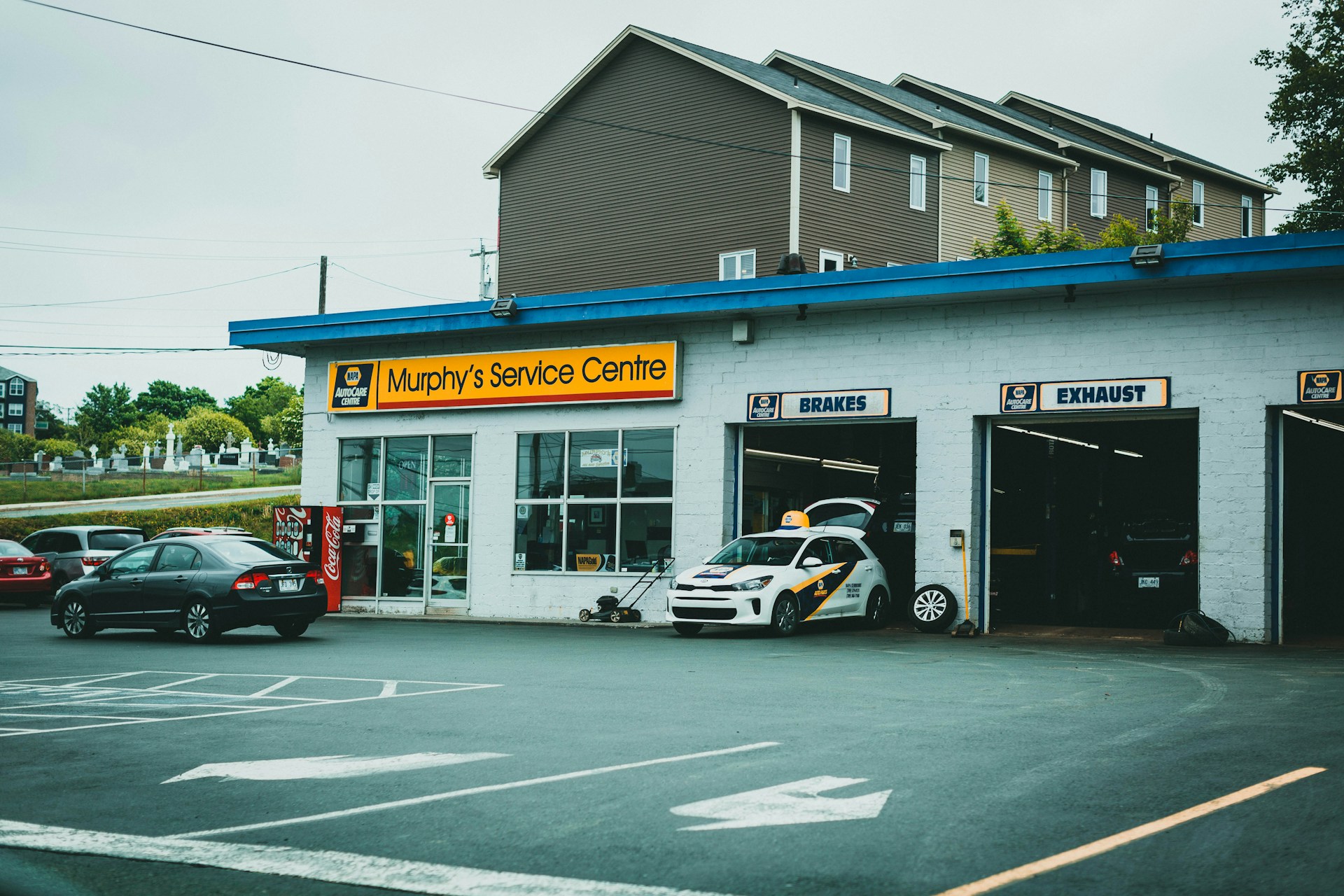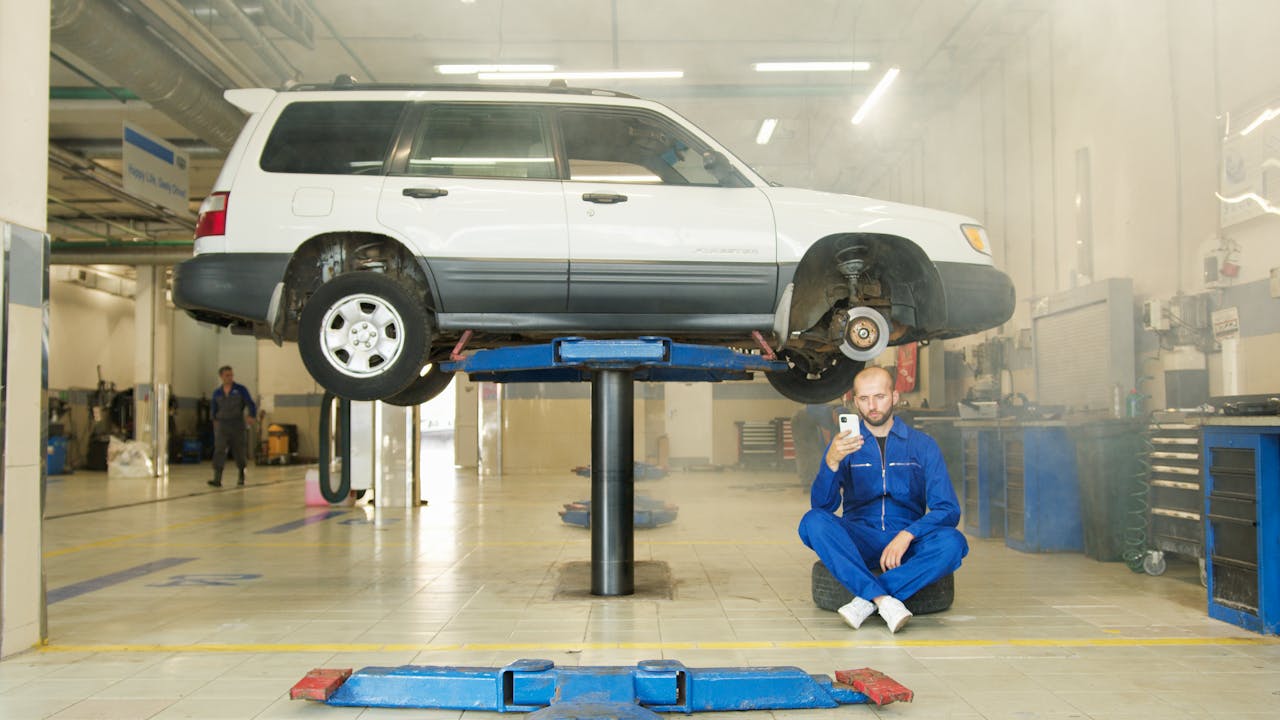Auto service center zoning approval in Frisco confirms that a site legally allows auto repair operations and establishes the pathway to building permits. This approval process connects Frisco zoning ordinances with construction authorization, ensuring your project meets both land use requirements and building standards.
The process follows a direct sequence from site research to zoning verification and permit submission. Projects advance through use approval verification, plan review coordination, and multi-department inspections that validate compliance with local regulations.
What Step-By-Step Path Helps You Secure Approval?
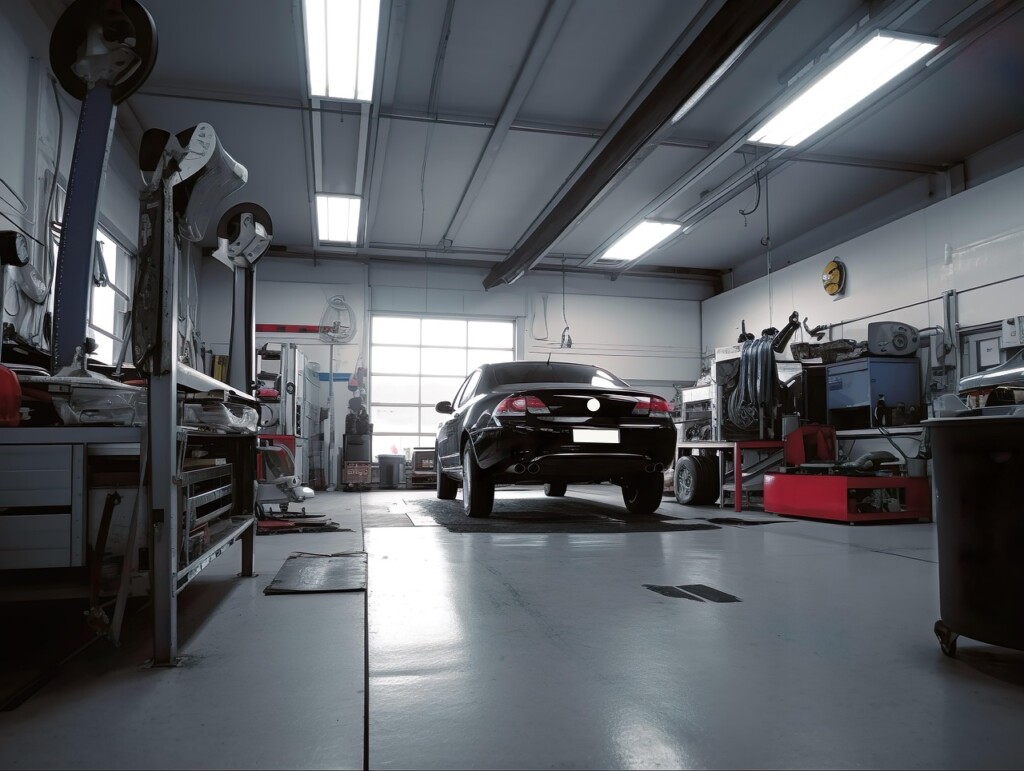
We follow a structured three-step sequence to secure auto service center zoning approval in Frisco. This methodical approach prevents delays and ensures all regulatory requirements are met before construction begins.
Step One: Research Site Conditions And Local Requirements
We begin by conducting thorough site research to understand the property’s constraints and opportunities. This phase involves examining setback requirements, which dictate how far buildings must be positioned from property lines. Parking standards require careful analysis, as auto repair facilities typically need specific ratios of parking spaces per service bay.
Operational limits vary by zoning district and can affect hours of operation, noise levels, and types of services permitted. We review conditional development standards that may impose additional requirements on automotive uses. These standards often address issues like screening requirements, landscaping buffers, and drainage provisions.
Step Two: Verify Zoning Status For Auto Repair Operations
The second step involves confirming whether the parcel allows auto repair uses under current zoning regulations. Properties may permit auto repair as a primary use, require it as a conditional use, or mandate a Specific Use Permit (SUP) for approval.
We secure official written confirmation of zoning status from the city planning department. This documentation prevents surprises during the permit review process and provides clear guidance on any special requirements. When an SUP is required, we prepare detailed applications that address community impact concerns and operational procedures.
Getting this verification early in the process is crucial. Without confirmed zoning status, building permit applications will be rejected or delayed while zoning issues are resolved.
Step Three: Submit Building Permit Applications With Complete Documentation
Once zoning status is confirmed, we proceed to building permit submission. This step requires comprehensive plan sets that demonstrate code compliance and operational functionality. We coordinate reviews across multiple city departments, including building safety, fire protection, public works, and environmental services.
Multi-department review processes require careful scheduling and follow-up to maintain project momentum. Each department may have specific requirements and review timelines. We track all comments and responses to ensure nothing falls through the cracks during the approval process.
Inspections are scheduled at key construction milestones, from foundation work through final occupancy. We maintain detailed records throughout this phase to document compliance and facilitate smooth inspections.
Where Are Auto Repair Uses Allowed In Frisco, And What Rules Apply?
The Use Chart in Subsection 3.02 serves as the primary reference for determining where Automobile Repair, Major and Minor uses can operate. This chart indicates whether your chosen district permits these uses by right, requires a Specific Use Permit (SUP), or prohibits them entirely.
For Automobile Repair, Minor, the chart shows permitted use (P) in Retail (R) and Original Town Commercial (OTC) districts, plus Highway (H), Commercial-1 (C-1), Commercial-2 (C-2), and Industrial (I) districts. Automobile Repair, Major has more restricted availability, requiring SUPs in Highway and Commercial-1 districts while being permitted by right only in Commercial-2 and Industrial districts.
The conditional development standards under §3.02.01(A)(36) establish specific requirements for automotive uses. These standards address operational aspects, setbacks, and performance criteria that projects must meet regardless of the underlying zoning permission. We reference these standards during site planning to ensure compliance from the outset.
Overlay districts add another layer of regulation that can override base zoning permissions. The Preston Road Overlay (PRO), Tollway Overlay (TO), and US 380 Overlay each contain restrictions that may prohibit automotive uses even where the base district allows them. The overlays often show “X” markings in the Use Chart, indicating complete prohibition of certain automotive operations.
The Original Town Commercial area faces proposed changes that would significantly impact automotive uses. Frisco officials have recommended new walkability-focused rules that would prohibit new drive-thrus, full-service car washes, convenience stores with gas pumps, big-box retailers, and bus terminals. The Frisco City Council must approve these changes before they take effect.
If adopted, existing businesses that no longer conform to the new rules would become nonconforming uses. These operations could continue but would face restrictions if they close for more than six months. Any expansion or modification would need to comply with the updated regulations, potentially limiting future changes to these properties.
What Plans And Materials Should You Include With The Permit Application?
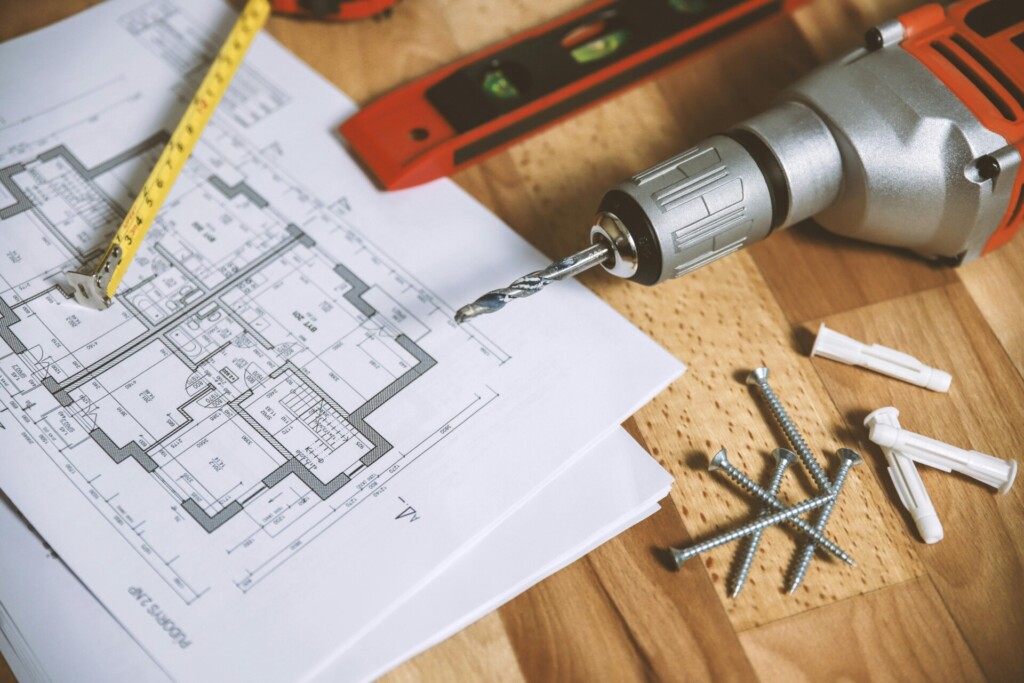
Auto service center permit applications require a comprehensive documentation package that demonstrates code compliance from site planning through operational design. Missing or incomplete materials can delay approvals for months, making thorough preparation essential for project momentum.
Site And Floor Plans
Site plans establish the building footprint and its relationship to property boundaries, setbacks, and surrounding features. Include clear property lines, easements, and all required setbacks specific to automotive uses. Show the building footprint with accurate dimensions and scale notation.
Floor plans detail internal layouts with labeled bay areas, waiting rooms, restrooms, and office space. Provide clear room labels and square footage calculations for each functional area. Include scale markings and north arrow orientation for reviewer reference.
Equipment And Bay Layouts
Equipment layouts show vehicle lifts positioning with adequate clearance for vehicle movement and technician access. Document power supply locations for lifts and diagnostic equipment, including electrical load calculations. Include ventilation system plans that show exhaust capture points and air circulation patterns required for automotive operations.
Tool storage areas need clear identification with security measures and accessibility compliance. Add detailed notes about hazardous material storage locations, including containment systems for oils, coolants, and cleaning solvents. These storage areas must meet environmental regulations and show proper drainage connections.
Emergency access routes require clear marking throughout the facility. Show fire extinguisher locations, emergency exits, and evacuation pathways that comply with building codes for automotive repair facilities.
Parking And Circulation Documentation
Parking calculations must match municipal requirements for automotive repair uses, typically including customer, employee, and vehicle storage needs. Show individual parking space dimensions, drive aisle widths, and total space counts with handicapped accessibility compliance.
Drive lanes need adequate width for customer vehicle access and service vehicle circulation. Include turning radii calculations for larger vehicles and delivery trucks that will access the facility. Queuing areas for customer drop-off and pickup require sufficient length to prevent backing up onto public streets.
Traffic flow patterns should demonstrate safe pedestrian and vehicle separation. Show sidewalks, crosswalks, and designated pedestrian routes from parking areas to building entrances.
Zoning Verification And Approvals
Zoning verification letters or certificates from the city planning department confirm the site legally allows automotive repair operations. These documents prevent delays during permit review by establishing use authorization upfront. Include copies of any conditional use permits or special approvals tied to the property.
Special development standards for automotive uses may require additional documentation or design modifications. Attach copies of any variance approvals or development agreements that affect site design or operations.
How Do Zoning, Permits, And Compliance Connect During Review?
Understanding the relationship between zoning approval, building permits, and code compliance streamlines auto service center projects in Frisco. Each element serves a distinct purpose while working together to move projects from concept to construction. We manage this interconnected process daily, ensuring proper sequencing and coordination among city departments.
Zoning Approval Establishes The Foundation
Zoning approval occurs first and sets the legal framework for your auto service center. This initial step confirms the permitted use and establishes operational parameters such as setbacks, parking ratios, and conditional requirements. The Frisco Planning and Zoning Commission reviews applications to ensure conformance with base district rules and overlay requirements.
We secure written confirmation of zoning compliance before advancing to permit applications. This documentation prevents costly redesigns later in the process. Official zoning verification letters or certificates provide clear evidence that your proposed use aligns with current land use regulations.
Building Permits Authorize Construction Activities
Building permits follow zoning approval and authorize actual construction work. The permit process evaluates structural, mechanical, electrical, and plumbing systems against applicable building codes. Multiple city departments review submitted plans to ensure safety standards and construction feasibility.
We coordinate permit submissions only after securing zoning confirmation. This sequencing prevents permit delays and reduces the likelihood of conflicting requirements between zoning and building standards. Complete plan sets with proper zoning documentation expedite the permit review timeline.
Code Compliance Runs Parallel Through Design And Review
Code compliance operates continuously throughout the design and permitting phases. Building codes, fire safety requirements, and accessibility standards shape design decisions from initial concept through final approval. We integrate compliance considerations early to avoid redesign cycles.
Plan reviewers from different departments provide feedback simultaneously rather than sequentially. Fire prevention, building safety, and development services coordinate their reviews to identify potential conflicts before construction begins. This parallel approach reduces overall project timelines while maintaining thorough oversight.
Multiple Departments Coordinate Reviews
Expect comments and requests from several city departments during the review process. Building inspections, fire prevention, development services, and engineering each evaluate different aspects of your project. We schedule coordination meetings to address overlapping requirements and clarify any conflicting feedback.
Response times vary by department and project complexity. Simple auto repair facilities typically move through review faster than complex service centers with fuel dispensing or paint booths. We maintain regular communication with all reviewing departments to track progress and address issues promptly.
Inspections Maintain Momentum Through Construction
Building inspections occur at predetermined milestones throughout construction. Foundation, framing, mechanical rough-in, and final inspections verify compliance with approved plans and applicable codes. We schedule inspections in advance to maintain project momentum and avoid construction delays.
Each inspection builds upon previous approvals, creating a documented trail of compliance verification. Failed inspections halt progress until corrections are completed and re-inspection occurs. We coordinate with inspection staff to understand requirements and prepare construction teams accordingly.
Documentation Trail Supports Ongoing Compliance
Comprehensive record keeping documents compliance at every project stage. We maintain files containing zoning verification letters, permit applications, plan review comments, inspection reports, and final approvals. This documentation trail supports future modifications, refinancing, or sale transactions.
Digital and physical copies ensure accessibility throughout the project lifecycle. Certificate of occupancy issuance marks the completion of the compliance verification process. These records provide evidence of proper approvals should questions arise during operations or future expansion planning.
Conclusion And Next Steps
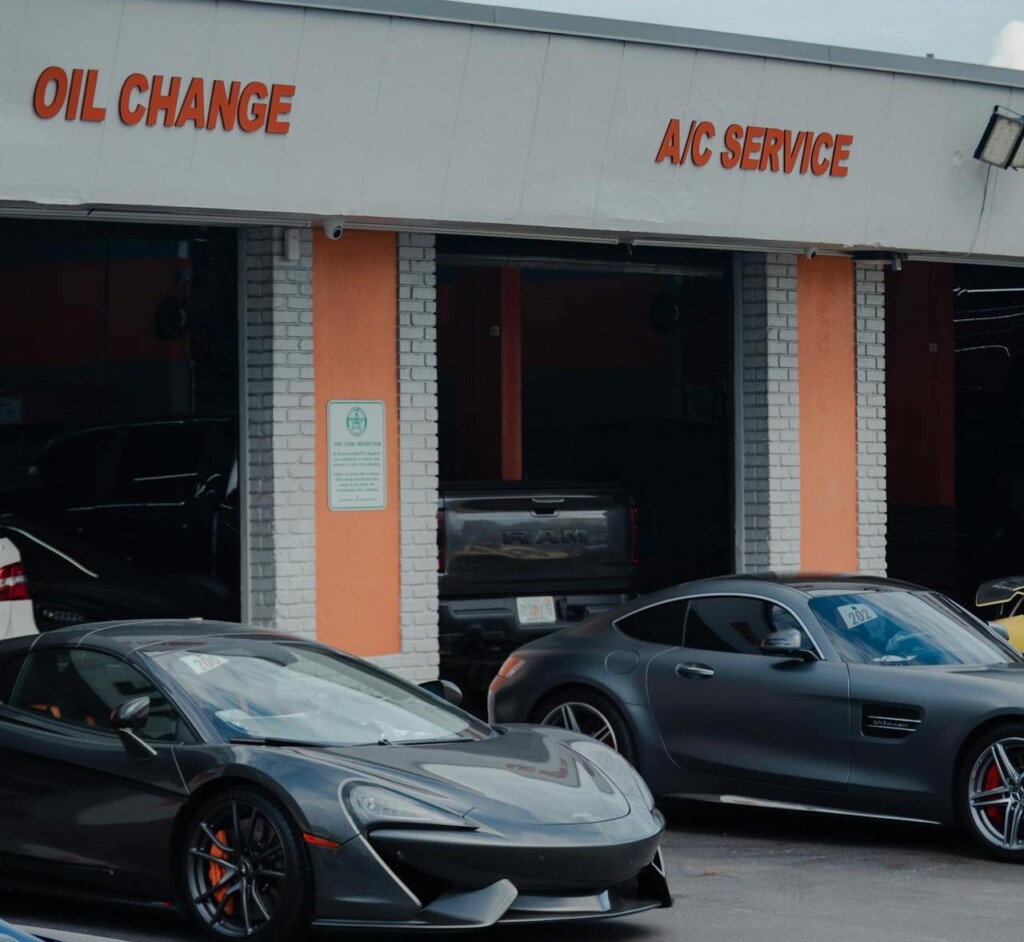
Auto service center zoning approval in Frisco follows a direct sequence that we coordinate through each phase. We verify allowed uses in the Use Chart, confirm overlay district restrictions, and secure written zoning verification before moving to permit submission. This approach reduces costly revisions and keeps projects moving through the approval process efficiently.
We prepare complete documentation packages that address zoning verification, site plans, equipment layouts, and parking circulation requirements from the start. For properties in or near Original Town Commercial areas, we track potential zoning changes that could affect future operations or expansion plans. The permit coordination sequence maintains momentum by ensuring each approval stage supports the next, from initial zoning confirmation through final inspections and certificate of occupancy.
Ready to move your auto service center project forward with proper zoning and permit coordination? Contact EB3 to ensure your application meets all Frisco requirements.


